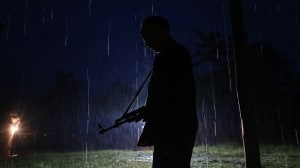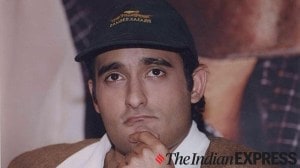Let146;s play 145;I Spy146;
Intelligence agents around the world share a complicated relationship. Like the CIA and ISI, which can8217;t live with - or do without - each other.

As they complete their training at 8216;The Farm8217;, the Central Intelligence Agency8217;s base in the Virginia tidewater, young agency recruits are taught a lesson they are expected never to forget during assignments overseas: there is no such thing as a friendly intelligence service.
But most CIA veterans agree that no relationship between the spy agency and a foreign intelligence service is quite as byzantine, or as maddening, as that between the CIA and Pakistan8217;s Directorate for Inter-Services Intelligence, ISI.
Like a bad marriage both spouses have long stopped trusting each other, but would never think of breaking up because they have become so mutually dependent.
Without the ISI8217;s help, American spies in Pakistan would be incapable of carrying out their primary mission in the country: hunting Islamic militants, including Al Qaeda. Without the millions of covert American dollars sent annually to Pakistan, ISI would have trouble competing with the spy service of its archrival, India. But the relationship is complicated by a web of competing interests. The American goal in the region is to shore up Afghanistan8217;s government and security services to better fight the ISI8217;s traditional proxies, the Taliban, there.
Inside Pakistan, America8217;s primary interest is to dismantle a Taliban and Qaeda safe haven in the mountainous tribal lands. Pakistan, and especially the ISI, used Taliban and militants from those areas to interfere in Afghanistan and block India from gaining influence there. The ISI has also supported militant groups that launched operations against Indian troops in Kashmir, complicating Washington8217;s efforts to stabilize the region.
There are few examples in history of spy services really trusting one another. But circumstances have forced successful partnerships among spies. The Office of Strategic Services, the CIA8217;s predecessor, worked with the KGB8217;s predecessors to hunt Nazis during World War II, even as the United States and the Soviet Union were becoming adversaries. American and Russian spies continue to collaborate to combat drug trafficking, organized crime, and to secure nuclear arsenals.
The relationship between the CIA and the ISI was better when the United States and Pakistan were focused on kicking the Soviet Union out of Afghanistan. During the 1980s, the CIA used the ISI to funnel arms and money to Afghan rebels fighting Soviet forces in Afghanistan.Still the two spy services were far from trusting of each other. In his book Ghost Wars, journalist Steve Coll recounts how the ISI chief in the early 1980s, Gen. Akhtar Abdur Rahman, banned all social contact between his ISI officers and CIA operatives in Pakistan. Convinced that the CIA had an elaborate bugging network, he had his officers speak in code on the telephone. When he was invited by the CIA to visit agency training sites in the United States, the Pakistanis were forced to wear blindfolds on the flights into the facilities.
Since the September 11 attacks, CIA officers in Islamabad know they will probably depend on the ISI at least as much as on any spy service in the past. But as American and allied casualty rates in Afghanistan have grown recently, the ISI has been the subject of fierce debate within the CIA. Many in the spy agency 8212; particularly those in Afghanistan 8212; accuse their agency colleagues at the Islamabad station of actually being too cozy with their ISI. counterparts.
The view from Kabul has been not only that the ISI is actively aiding militants, but that CIA officers in Pakistan refuse to confront the ISI over the issue. The CIA station in Islamabad points to the capture of a number of senior Qaeda leaders in Pakistan as proof that the Pakistani intelligence service is serious about rolling up terror networks.
The ISI has just as much reason to distrust the Americans as the CIA has to distrust the ISI. The ISI operates in a neighborhood of constantly shifting alliances, where double dealing is an accepted rule of the game, and the phenomenon is one that many in Washington still have problems accepting.
Until late last year, when he was elevated to the command of the entire army, Gen. Ashfaq Parvez Kayani ran ISI. American officials describe this smart and urbane general as at once engaging and inscrutable, an avid golfer with occasionally odd affectations. During meetings, he will spend several minutes carefully hand-rolling a cigarette. Then, after taking one puff, he stubs it out.
The grumbling at the CIA about ISI comes with a certain grudging reverence for the spy service8217;s Machiavellian qualities. One senior CIA official, recently retired, said that of all the foreign spymasters the CIA had dealt with, General Kayani was the most formidable. The soft-spoken general, he said, is a master manipulator. 8220;We admire those traits,8221; he said.
- 01
- 02
- 03
- 04
- 05































